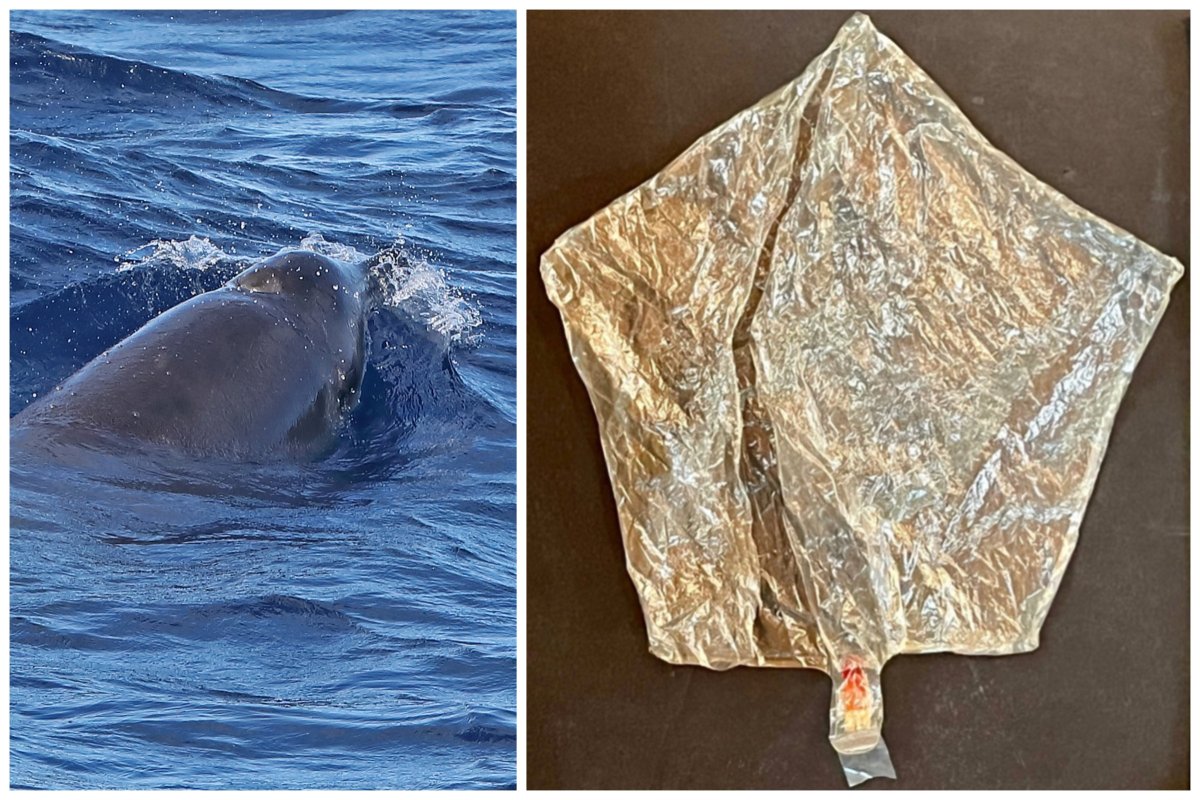A ten-foot whale that washed up on a beach in North Carolina is believed to have died after ingesting a party balloon.
The Gervais' beaked whale was first reported in the shallows of Emerald Isle Beach on October 30, the NC Marine Mammal Stranding Network said in a statement. The team confirmed that the animal was a female calf measuring 10 feet 9 inches long. However, by the time they arrived at the scene, the whale had expired.
With assistance from beachgoers, the Emerald Isle Public Works and the local police department, the whale was successfully removed from the surf and taken to the North Carolina State University Center for Marine Science and Technology. A necropsy was performed the following day.
During the necropsy, the team examined every tissue of the young whale and found nothing particularly unusual—until they cut open her stomach.

"In addition to some milk (indicating the female was a nursing calf), a pentagonal plastic balloon was discovered, crumpled up and obstructing the passage of digesta to the rest of the gastrointestinal tract," CMAST said in a statement on Facebook.
"Beaked whales are large, deep diving marine mammals," CMAST said. "Little is known about Gervais' beaked whale social structure and life history. Live sightings are unusual because the normal habitat for these animals is at the continental shelf edge and beyond, and they spend most of their time underwater."
Sadly, strandings like this are not uncommon in North Carolina.
"Approximately 125 marine mammals strand on NC beaches each year, including whales, dolphins, porpoises, seals, and manatees," CMAST said. "There are many reasons that animals wash ashore. Some include natural causes such as infectious diseases, parasites, cancers, and starvation. Some causes are from human interactions including entanglement in fishing gear (active and ghost), ship and boat strikes, and ingestion of plastic. Unfortunately, this young female whale died due to ingestion of plastic."
Helium balloons can travel hundreds if not thousands, of miles before often landing in oceans, forests and other natural areas. If ingested, these balloons can block animals' respiratory tracts or digestive systems, causing suffocation or starvation.
"Before purchasing balloons to commemorate important life events (whether they are latex or Mylar), please consider using biodegradable alternatives instead," CMAST said. "Biodegradable paper decorations are more eco-friendly and often less expensive. Though people often release balloons to remember and honor loved ones, we urge people to consider other methods (lighting a candle, scattering flower petals, etc.) to commemorate their loved ones instead."
Uncommon Knowledge
Newsweek is committed to challenging conventional wisdom and finding connections in the search for common ground.
Newsweek is committed to challenging conventional wisdom and finding connections in the search for common ground.
About the writer
Pandora Dewan is a Senior Science Reporter at Newsweek based in London, UK. Her focus is reporting on science, health ... Read more
To read how Newsweek uses AI as a newsroom tool, Click here.






